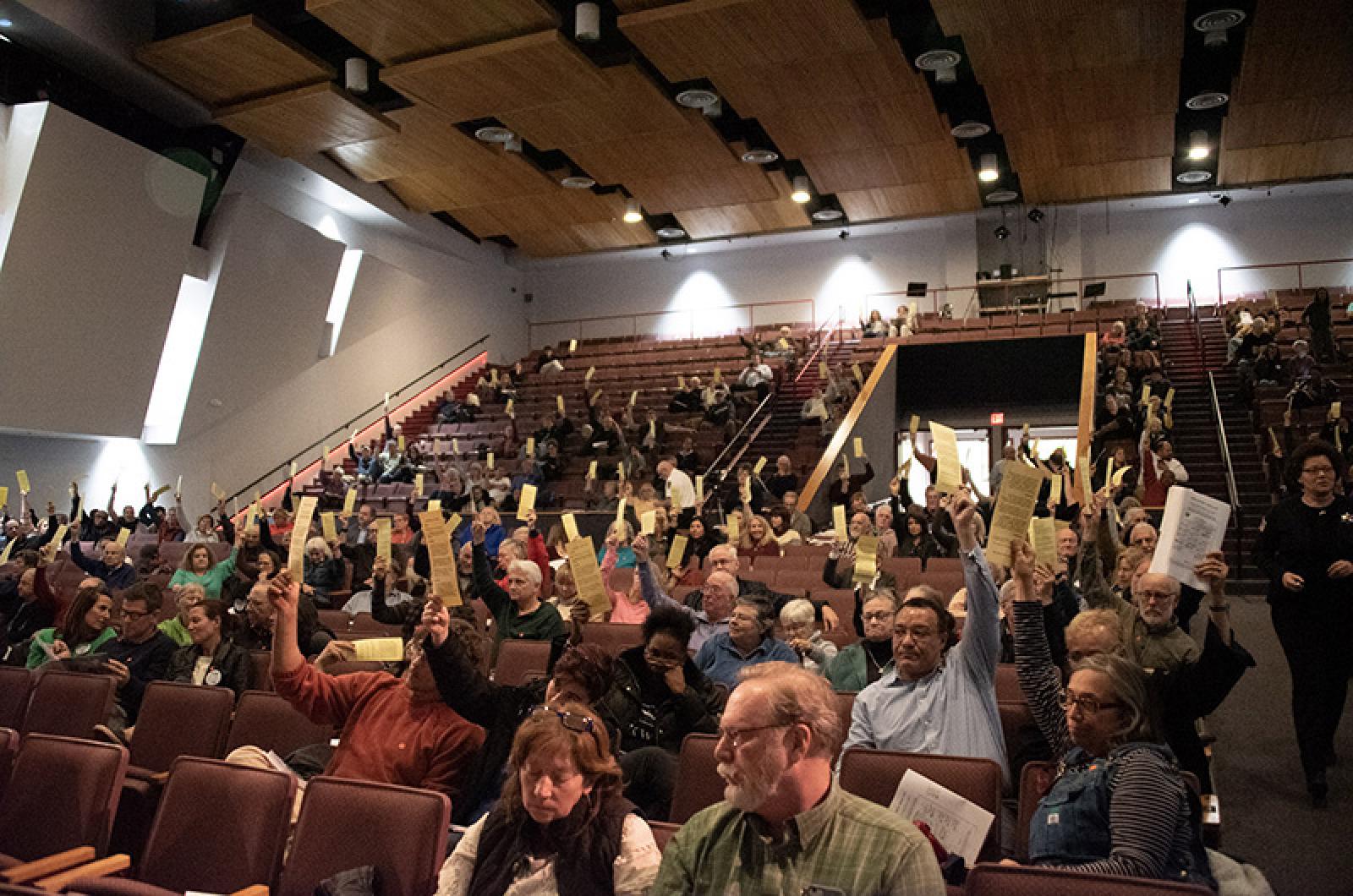Proponents hailed it as a generational opportunity; a grass roots, once-in-a-lifetime solution to a historically unsolvable — and rapidly-worsening — problem.
Opponents cast it as a gamble, a money grab and a wolf in sheep’s clothing, describing it as a rushed, bureaucratic approach to a crisis they already had plans to fix.
Everyone called it the housing bank — a novel proposal to permanently dedicate a portion of funding from the recently-enacted short-term rental tax to stem the Island housing crisis. This time last year, the housing bank issue dominated Island discourse — from the moment an ad-hoc committee of about 20 Island housing activists proposed it in January, to the moment it was brought to town meeting floor three months later. Attracting both strong support and vocal opposition, it thrust the issue of housing affordability squarely in the center of the Vineyard’s social and economic consciousness, in a way that few proposals had ever done before.
Then it was shelved in favor of more study.
A year later, the visible public campaign for the housing bank has largely disappeared — relegated to a cohort of devoted activists in working groups trying to hash out proposals in subcommittees and town hall meeting rooms.
“A lot of people forget it,” said Doug Finn, who is serving on a West Tisbury housing committee formed following the town meeting votes last year. There is a similar committee in Edgartown. On the town meeting floor, the committees were framed as a compromise for voters who understood that the initiative wouldn’t pass — but didn’t want discussion to die.
While not dead, the discussion looks and sounds quite different.
A year ago this month, pamphlets describing the housing bank proposal in urgent terms blanketed grocery stores, libraries, coffee tables and pages of newspapers. There was fundraising and phone banking and door-knocking, listening sessions, forums, dueling op-eds, public debates and social media spats — all highlighting the Island housing crisis in the lead up to town meeting.
Many selectmen argued that the idea was flawed, hastily conceived and risky. For one thing, Island towns didn’t even know yet how much revenue the short-term rental tax would bring in since its had only been enacted a few months earlier and would not take effect until July. In the end they fought against it, and the proposal was postponed, with four of the six Island towns agreeing to form working groups to address the problem.
Today, as housing construction, rent and real estate prices continue to skyrocket, the need to address the housing crisis appears more acute than ever.
But many of the same divisions that drew battle lines on the town meeting floor remain.
“There are some . . . who feel the proposal was a good one,” Mr. Finn said, referring to the working group. “There are some on the committee who feel the proposal was too much, too fast, too rushed, that not enough questions were answered at the time. But everyone on the committee, including myself, still feels the urgency of the need. And the need to do something.”
What that something is has become the question. The working groups in West Tisbury and Edgartown say the theory of a housing bank is still alive, but the funding concept has shifted from use of the short-term rental tax to a possible transfer tax on home sales.
No proposal will be brought before voters this year. The West Tisbury and Edgartown working groups plan to provide an update for voters at their annual town meetings.
Edgartown selectman Michael Donaroma, who led the compromise ef
fort last year and serves on the town working group, reflected this week on lessons learned.
“The biggest problem was the housing bank was trying to pick the town’s pocket somehow, for lack of a better term,” he said. “And nobody wants to give up what we’re already using. And the numbers going forward haven’t really been established as of yet.”
Mr. Donaroma said his group, which includes other town officials and housing bank advocates, has met multiple times, with another meeting scheduled in March. He said a new proposal to impose a 0.5 per cent transfer tax on home sales above $1 million is promising. He said the transfer tax proposal has the backing of state Rep. Dylan Fernandes, and he is cautiously optimistic that it will receive less pushback on the Island than the use of the short-term rental tax as a revenue stream.
In fact the transfer tax idea is where housing bank advocates began over a decade ago. In 2005, a similar proposal was presented, but swiftly derailed by real estate industry interests.
Mr. Donaroma said he thinks the climate is different this time around.
“That one never really got to the floor, because of the huge real estate lobby,” he said. “But I think the state is realizing that housing is a really serious issue now. This is something we can do, and we’re really hopeful that we could push something like this through. It would be a home run.”
Housing bank advocates also express enthusiasm for the idea, but said the sting of rejection from last year lingers nevertheless.
“We felt we got beat up a bit on a personal level, and it was disheartening, and that’s life,” said Derrill Bazzy, a staunch housing bank proponent. “But I would say, in general, this is an effort that has been going on for years, and will continue going on because the need is so great.” He concluded:
“People understand the issue. They know it is a problem. So in the end we’re going to be able to find a solution. It may just take a longer time.”







Comments (22)
Comments
Comment policy »